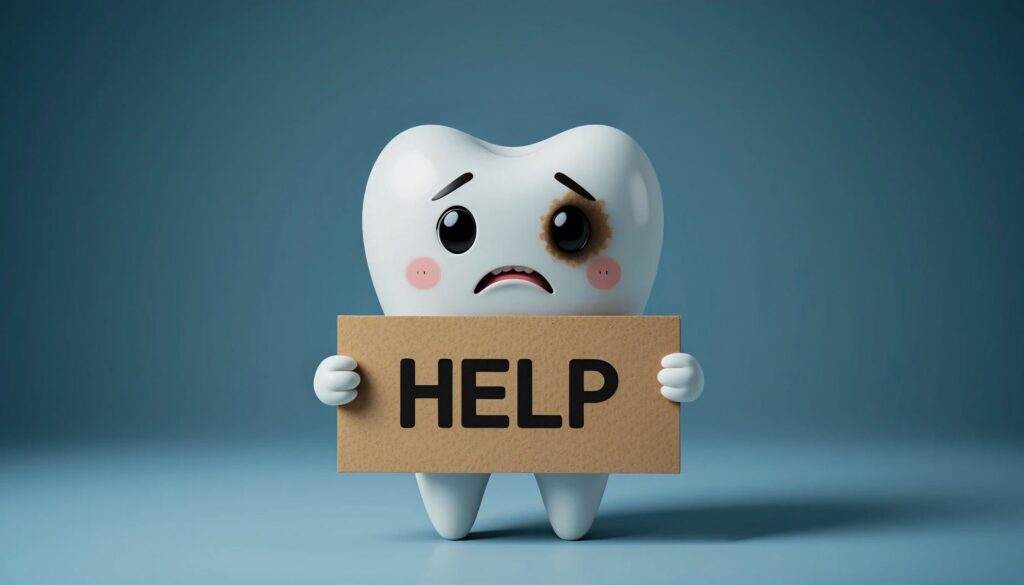
Brushing and flossing your teeth consistently can help prevent common oral issues, like cavities or gum disease. However, there’s no guarantee that you’ll never develop a problem, especially in spaces that are hard to see or reach, like between two teeth.
Unfortunately, dental problems don’t resolve themselves, so it’s important to know when you need to contact your dentist for help with tooth decay. Continue reading to learn about 3 potential indicators that you might have a hidden cavity, so you can address it sooner rather than later!
Indicator #1: Sensitivity
Tooth decay occurs when bacteria in your mouth produce acids that wear down your enamel. As it thins, the microscopic pores it contains can more easily transmit sensation through the lower layer of dentin and into the tender nerves inside your teeth.
This can make you more sensitive to external stimuli, like changes in pressure or temperature. If you notice a sharp sensation when biting down, it could point to deeper decay or damage near a nerve. Not only that, but you might experience tenderness or aches when eating or drinking anything too hot or cold if a cavity has developed.
Indicator #2: Discoloration
Another sign that you might have hidden tooth decay is that your tooth looks darker in places. This often is the result of pits in your enamel that allow more of the darker layer of dentin to show through, making your pearly white appear more yellow or brown than pearly white.
If you see a change in the tone of your teeth, such as brown, black, or white spots, you might want to contact your dentist for an exam. They can take X-rays of your mouth to determine whether you have any cavities and exactly where they’re located.
Indicator #3: Bad Breath
Tooth decay can form pits in your teeth that can, unfortunately, trap bits of food, saliva, and other debris. This attracts unhealthy bacteria that can flourish. As they do, they produce unpleasant volatile sulfur compounds (VSCs) that can have a rotten-egg aroma.
While it’s normal to have smelly breath when you first wake up in the morning, if it is persistent or severe, or is accompanied by a foul taste in your mouth, you should contact your dentist.
Although your dentist can treat cavities with tooth-colored fillings or dental crowns, you can prevent them from occurring in the first place by scheduling routine checkups and cleanings with your dentist every six months!
About the Practice
At Family & Implant Dentistry of Stuart, patients benefit from the expertise of two dentists eager to help them build happy, healthy smiles. Dr. Broaddus and Dr. Laffita strive to make each visit as comfortable as possible and take the time to get to know your individual needs and concerns. Then, they utilize state-of-the-art equipment to provide a comprehensive menu of services to address them, including tooth-colored fillings. If you’re concerned about cavities and need help, you can request an appointment on the website or call (772) 286-3088.
